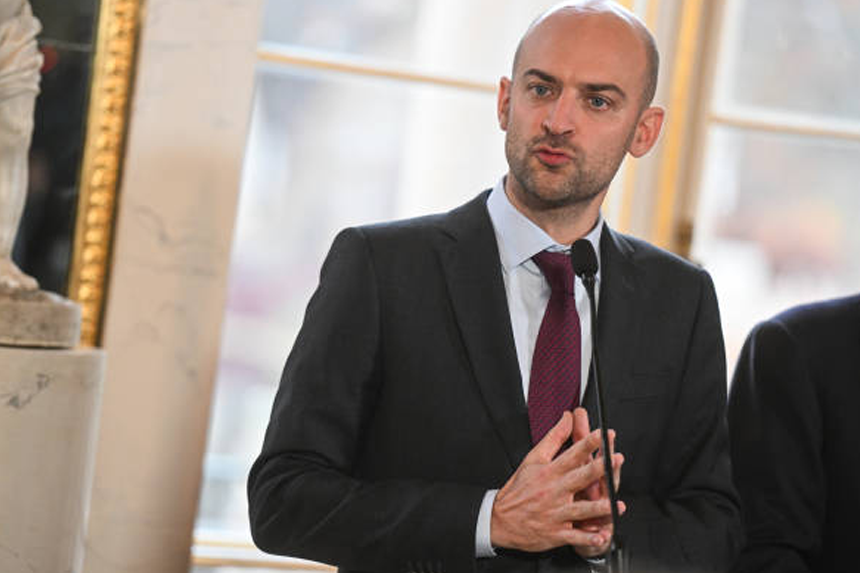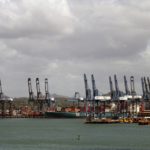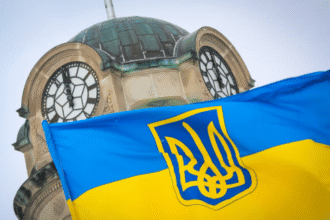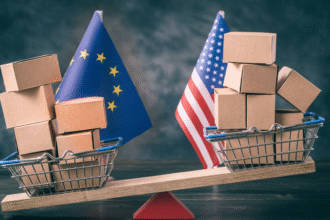In response to U.S. President-elect Donald Trump’s latest comments over Greenland, France said in a forceful statement that the European Union would not accept any attack on its “sovereign borders.” This follows Trump’s once more announced wish to purchase Greenland, a part of Denmark, citing its relevance for national and financial security. In the current global discussion, the problem has generated grave questions regarding Greenland’s sovereignty.
- Why Has Denmark Turned Aside from Trump's Suggestion?
- What Regarding Greenland and the Panama Canal Did Trump Say?
- Should Trump's comments cause the European Union to get intimidated?
- What Future Does Denmark's Prime Minister See for Greenland?
- Greenlanders' reaction to Trump's threats?
- Is This Conflict Drawing Towards an International Crisis?
- Looking Ahead for Greenland and Its Future
Trump underlined on Tuesday his ambition to annex the independent Danish region and called Greenland “critical” for American interests. French Foreign Minister Jean-Noël Barrot immediately responded after he remarked on French radio, stressing the EU’s will to protect its sovereignty. Barrot underlined that the European Union would not accept any challenge to Greenland’s sovereignty.
“There is obviously no question that the European Union would let other nations of the world attack its sovereign borders, whichever they are,” Barrot remarked. “We cannot let ourselves to be intimidated.”
Why Has Denmark Turned Aside from Trump's Suggestion?
Barrot expressed hope that the United States would not attack Greenland. Still, the Danish government, together with the Greenland people, has regularly opposed the concept of the country being sold or surrendered to the U.S. Denmark and Greenland have made it quite apparent that the island is not for sale, notwithstanding Greenland’s great strategic and economic value—especially given its large mineral riches and military relevance. The fundamental question of this continuous conflict still is Greenland’s sovereignty.
Mute Egede, Greenland’s prime minister advocating independence from Denmark, underlined that the island is owned by its people. “Greenland belongs to the Greenlanders,” Egede told reporters, stressing once more that only the indigenous population could decide the island’s future.
What Regarding Greenland and the Panama Canal Did Trump Say?
Just weeks before Trump’s second term as U.S. president is to start, his remarks came during a news conference at his Mar-a-Lago home in Florida. Trump answered, “No, I can’t assure you on either of those two,” when asked whether he would rule out employing military or financial force to seize Greenland or the Panama Canal. We do, however, require them for economic stability.”
Greenland has been a key site for military strategy, especially since the Cold War when the United States built an antenna station there. Trump contended that detecting Chinese and Russian naval operations depends on Greenland’s position. “I’m talking about protecting the free world,” he said, stressing the island’s importance in world security connected to the more general question of Greenland sovereignty.
Should Trump's comments cause the European Union to get intimidated?
Barrot made it abundantly apparent in response to Trump’s belligerent language that the European Union should not let itself be frightened. “If you’re wondering whether I believe the United States will invade Greenland, my response is no,” Barrot said on France Inter radio. “Have we entered a time when the survival of the fittest is returning? The response is then yes. Should we thus let ourselves be scared and dominated by anxiety? Certainly not. We have to get ready and gather our strength.
Barrot’s remark captures a more general EU view that sovereign countries, independent of their size or strength of opponent, must defend their autonomy against outside pressure. This story revolves mostly around Greenland sovereignty.
What Future Does Denmark's Prime Minister See for Greenland?
Danish Prime Minister Mette Frederiksen also intervened in the conflict, underlining that Greenland’s population decided on the buyer of the island. “Greenland belongs to the Greenlanders,” Frederiksen declared in a TV interview. She still acknowledged Denmark’s continuous need for close connections with the United States, emphasizing the nation’s NATO alliance status.
Though Greenland, the biggest island in the world, has great autonomy, its economy still depends on Danish subsidies and stays a part of the Kingdom of Denmark. Global powers, especially the United States, have made the island a point of interest due to its geostrategic relevance and abundance of natural resources, including rare earth minerals vital for producing batteries and high-tech equipment. Still, Greenland’s sovereignty continues to cause friction.
Greenlanders' reaction to Trump's threats?
Greenlanders have responded with astonishment and dismay to Trump’s military action proposal. The idea of the United States deploying military might to seize the island has shocked many residents.
Although most Greenlanders want their country to be independent, they still understand the importance of a partner offering defensive and financial support. One source claimed: “I have yet to meet someone in Greenland who is dreaming of the island becoming a colony for another outside power like the USA.” The people of Greenland still give the sovereignty of the island top importance.
Is This Conflict Drawing Towards an International Crisis?
Although the Danish government has tried to minimize the public awareness of the situation, behind-the-scenes worries about a significant worldwide disaster are mounting. If the problem intensifies, it could become the “biggest international crisis for Denmark in modern history.”
In the interim, Trump’s son, Donald Trump Jr., quickly visited Greenland on Tuesday. Declaring the trip as a “personal day trip,” Trump Jr. visited local Greenlanders and shared a picture of a group of them sporting pro-Trump caps, which only served to heighten the already mounting conflict around the island’s future and sovereignty.
Looking Ahead for Greenland and Its Future
The future of the Arctic territory is still unknown as hostilities develop between the United States, Denmark, and Greenland. Denmark and Greenland have vehemently rejected any idea of the island changing hands, while Trump has indicated a wish to acquire Greenland for its strategic and economic worth. Leading the European Union, France makes it abundantly evident that any challenge to European sovereignty—including Greenland’s—will be presented under a single front.








